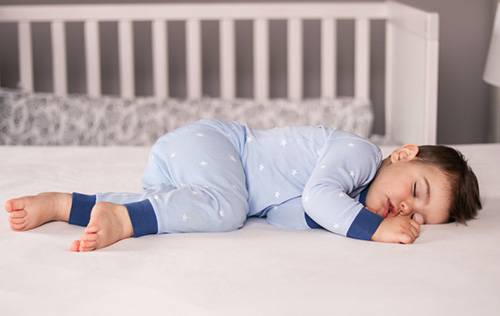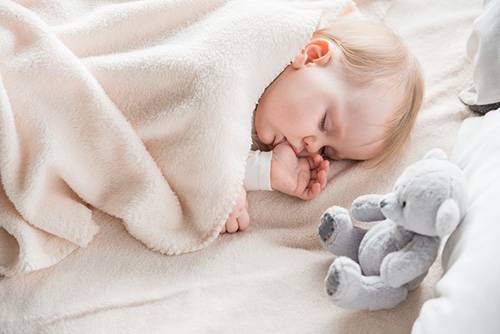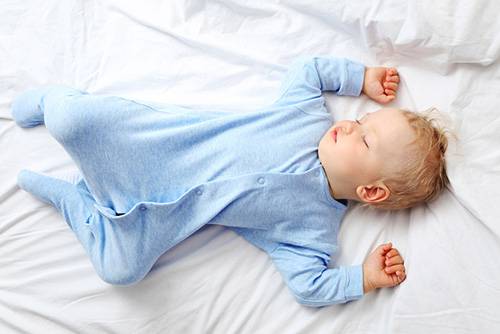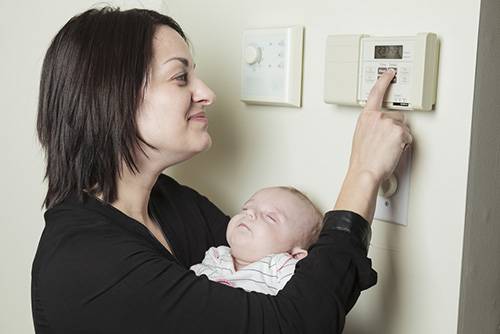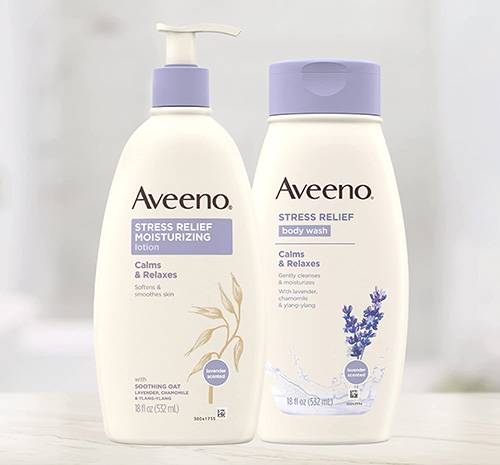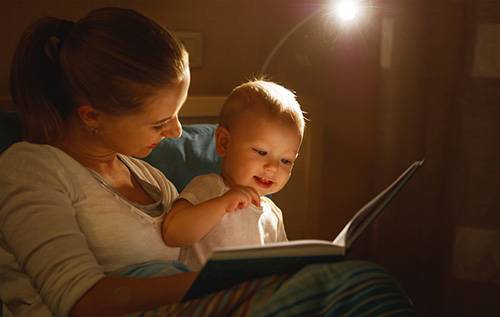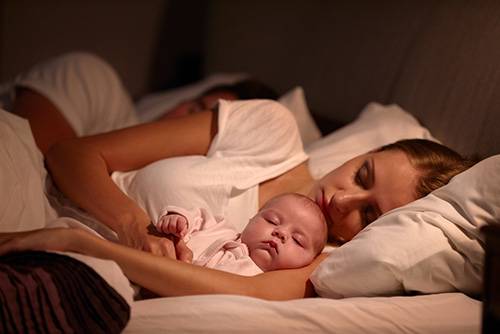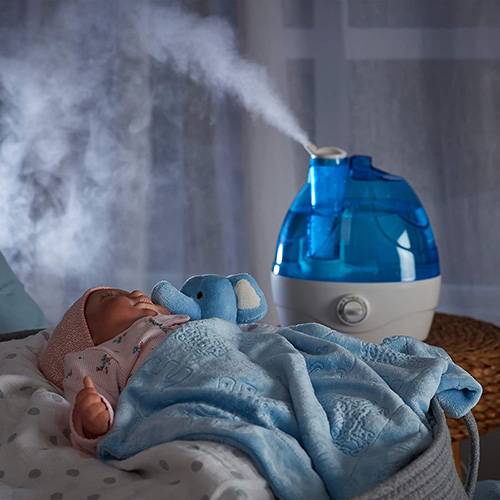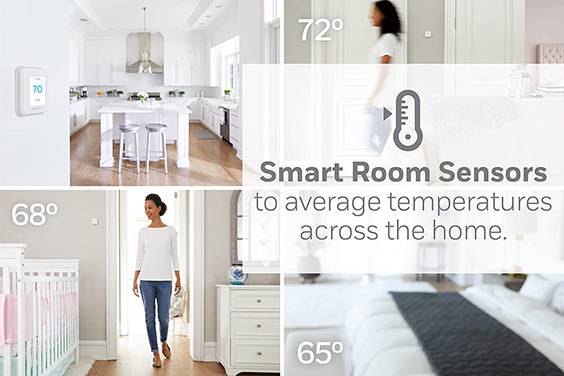
In order to create an ideal sleeping environment, you should monitor the temperature in your baby’s room and make sure that your baby is getting plenty of sleep. If the room is too hot, your baby can become hot, sweaty, and fussy, especially if they are dressed in heavy clothing or too warm pajamas. On the other hand, if the room is too cold, your baby could catch a chill and either become sick or wake up throughout the night uncomfortable and fussy.
The Ideal Temperatures
In order for babies to sleep comfortably, the ideal temperature within the baby’s bedroom should be anywhere from 68 degrees to 72 degrees. This may seem a bit too cold for some, but again, at night, our bodies heat up during the sleep process and this same process applies to babies. While this may be a too cool temperature for the rest of the house, you can always invest in either a window air conditioning unit or even a few fans in order to keep your baby cool. These options would be best for anyone who lives in a hot and humid climate. If you live in a cooler climate, odds are you can get away with cracking open a window or just leaving the heater off at night in order to get to that ideal temperature.
This ideal temperature level of 68 degrees to 72 degrees Fahrenheit will ensure that your baby is cool enough to fall asleep and, best yet, cool enough to stay asleep. One way to make sure that your baby will be comfortable within his or her bedroom, is to gauge how you feel. If you feel a bit warm, your baby will definitely feel warm, too. If you feel a bit hot and stuffy, odds are your baby will feel warm and become fussy. In order to maintain your baby’s comfort all throughout the night and to promote more sleep time, remember to avoid heavy blankets and overly warm pajamas.
Don’t Risk Overheating
A common risk of SIDS (Sudden Infant Death Syndrome) is associated with a baby overheating in the night. This happens by accident as parents want to make sure that their babies are warm all throughout the night, so piling on heavy pajamas and blankets is a common misconception when it comes to keeping your baby comfortable all throughout the night. Too thick pajamas will not only make your baby hot and uncomfortable, but they can also become sweaty. Any moisture on their pajamas over time can lead to rashes or even worse, a cold or other illness. Keep your baby cool and comfortable with airy, light fabric pajamas and easy to move around in clothing. Much like adults, babies also want to be comfortable in the clothes they wear to bed, so heavy fabrics and too warm materials will make a baby uncomfortable.
The same idea goes with the types of bedding you use. Heavy blankets may become too much for your baby and he or she will more than likely become hot and sweaty in the night. In order to avoid this, always use light sheets or a lighter blanket so your baby won’t feel so hot and won’t feel the heavy weight of the fabrics laying across them at night. You can always dress your baby in light pajamas and add in some socks in order to make sure not too much body heat is escaping your baby, especially in the cooler months of the year.
A good rule of thumb is that it is always easier to incorporate things like blankets compared to having to take clothing off your baby if you notice that he or she is sweaty. This will not only wake up your baby, but it will also make them uncomfortable as they will feel too warm and more than likely wake up fussy. If you see that your sleeping baby is sweating or feels too warm to the touch, then definitely start to remove the heavy clothing or blankets. It’s better to risk them waking up than overheating within the night.
Comfy Pajamas
A good way to keep your baby safe and cool at night is to dress them in light pajamas. Do not layer on pajamas unless you absolutely have to. Anything cotton will be breathable, and one set of pajamas will be more than enough, especially if you also add in a comfy blanket for the baby to sleep under. Layering on onesies upon onesies or other types of pajamas is a sure way to make your baby hot and uncomfortable in the night. This will lead to sweating and becoming fussy, which leads to no one getting much sleep in the house. While wintery pajama sets are adorable and huggable soft, you will want to make sure that your baby is able to sleep in something light and warm, but not heavy.
Stay away from heavy fabrics such as wool or heavily threaded fabrics as these can cause your baby to overheat in the night. During the daytime, when you can actively monitor your baby, you can use these types of materials, especially if venturing outdoors when it is cold out. At night, however, when they are needing to get plenty of rest, the lighter the fabric the better. Remember, you can always add in some warm elements, such as blankets and socks, but reducing the heat is a bit harder once your baby is already layered and tucked in for the night.
How to Keep the Perfect Temperature
A fool proof way to monitor your baby’s sleeping environment temperature is to check the thermostat on a regular basis. The lower your turn down the thermostat, the colder the room will be. You can set your thermostat to the ideal temperature range of 68 degrees to 72 degrees Fahrenheit and feel at ease that your climate within the room will be automatically set and monitored. If it gets too cold or hot above or below that range, your thermostat will kick in and keep the room at your set temperature preference. While this is perfect for a one room monitoring system, odds are your thermostat controls the entire home, in which case each room’s individual temperature may vary slightly. Some rooms may be a bit cooler than others due to larger windows or drafts, while other rooms may be a bit warmer due to no windows or insulation.
In order to check and monitor the temperature within your baby’s individual room, an indoor thermometer is a great back up to have. This way, you will be able to tell right away the exact temperature of your baby’s room, compared to the entire house set by a home thermostat. These two elements in conjunction will help you create an ideal sleep environment for your baby that is neither too hot nor too cold, but just right for the baby to sleep in. Installing a ceiling fan within the baby’s room is another great way to disperse the heat and keep the baby cool, but not drafty.
Before Bedtime Routine
Having a good before bedtime routine can also help you, your baby and your whole family fall asleep more comfortably. If your family is able to fall asleep more comfortably, this will also promote staying asleep longer throughout the night. When it comes to babies, having a relaxing before bed bath with lavender and chamomile scented body washes or soaps can help wind your baby down and get him or her ready to fall asleep. Always make sure whatever relaxation products you are using are indeed safe for babies and approved for baby use. Helping your baby wind down at the end of the day will not only promote better sleep, but it will also signal to your baby that the time for sleep is coming. This routine over time will help your baby understand that it’s time to go to sleep soon, and he or she will grow accustomed to this routine and start to wind down naturally.
Another method that you could use to help your baby fall asleep is getting used to a story before bedtime. Reading a book to your child will help them fall asleep simply due to the lull of your voice. Even if your baby is very small and can’t understand an entire book, the point is to help him or her relax in order to fall asleep to the sound of your voice. Another good way to accomplish this comfort is by adding in a toy or mobile that plays some soft music for your baby to help him or her fall asleep. The sounds are sure to comfort your baby and help him or her fall asleep feeling safer and more comfortable.
Everyone will Sleep Better
If you are able to help your baby wind down and fall asleep, odds are everyone else in your household will also be able to fall asleep more comfortably and stay asleep longer. A crying, fussy baby at night is a sure way to wake everyone up, so being able to provide an ideal sleep environment for your baby will benefit, not only your little one, but you and the rest of your family, as well. The sleep temperature is not only ideal for your baby but having a cooler temperature throughout the house at night is also a great way to help everyone else get necessary sleep, as well.
The cooler the environment is within a home, the faster someone will fall asleep and the longer your family can stay asleep. No one is comfortable in a warm or stuffy house, so incorporating a necessary sleep temperature range and providing ceiling fans or cracked open windows for a light breeze is a great way to promote restful sleep for your entire home. If you do have a thermostat for your home, you don’t have to keep it at a colder range all throughout the day. Keep your home at your ideal living temperature for the daytime hours, and at night, lower the thermostat so that the environment is cooler and better for sleep. Some thermostats even have a timer, so you can set your ideal daytime temperature for a specific range of time, and at night, your thermostat will cool the house at your ideal tempter until the morning. This way you won’t have to monitor your thermostat as often and you can sleep more soundly.
Extra Essentials
Aside from the ideal temperature setting and nighttime before bed routine, you can also incorporate elements to help soothe your baby such as essential oils or a diffuser or humidifier. We already touched on the benefits of adding some calming music into your baby’s space but adding some aromatherapy elements just might help your baby fall asleep faster, too. Essential oils such as lavender and eucalyptus can help your baby if he or she has allergy issues and help your baby breathe better all throughout the night. The calming oils such as lavender and chamomile can also help your baby feel more relaxed and more inclined to fall asleep faster.
While essential oils may not be ideal for your baby depending on allergies and living situation, you can always look into this alternative form of sleep aid to see what works for you and your family. A humidifier with vapor can help if your baby suffers from allergies or asthma, as these medicated menthol vapors can help your baby breathe easier and he or she won’t wake up coughing in the middle of the night. Just some extra elements to consider when it comes to helping your baby fall asleep faster and staying asleep for a much longer time frame.
The Takeaways
To wrap things up, it’s always a good ideal to provide an essential sleep temperature for your baby. This range should be within 68 degrees to 72 degrees Fahrenheit, but always check your internal temperature of your baby’s room. While you may have a thermostat for your entire house, the temperature could range from room to room, and this includes your baby’s room. Incorporating an internal thermometer with your home thermostat can help you know for sure what the temperature is within your baby’s room so he or she will sleep within this ideal sleep range and be more rested overall.
Other elements to consider are how you dress your baby for sleep. You don’t want hot, stuffy clothing and you also don’t want to incorporate heavy blankets into his or her sleep area. Using light pajamas with socks and a warm blanket is ideal and won’t promote overheating in your baby. It’s always easier to incorporate warmer elements instead of taking things out or off, so it’s ok to dress them lightly if they also have a warm blanket. You do not want to layer your baby up and then also incorporate heavy blankets. A light blanket or even a sheet will be more than enough to keep your baby warm, especially in the hotter months of the year. Save your heavier blankets for winter or for the coldest months of the year within your area.
You may want to check out: Why Do Babies Smile in Their Sleep?
Conclusion
Overall, the cooler the temperature is within your baby’s room, the better he or she will sleep. If you keep your baby’s room temperature within that ideal sleep range of 68 degrees to 72 degrees Fahrenheit, then he or she is more than likely going to get the best sleep possible. If your baby is sleeping better, then that means that you will sleep better, and your entire household will also be able to sleep longer throughout the night. A cooler home temperature is ideal, not only for babies, but for everyone as our bodies naturally heat up during the sleep process.
Keep your home cooler by also incorporating ceiling fans to provide some moving air within the bedrooms and keeping an internal thermometer within your baby’s room so you always know the exact temperature. Since it’s so important for babies to get adequate sleep due to their overall development, you will feel better knowing that you are providing the ideal sleep environment for your baby. The more sleep your baby gets throughout the night, the better he or she will feel throughout the day and the less likely they are to get sick or lethargic. Sleep is so important for everyone, but especially for the smallest members of your family.
Photo credit: yamasan0708/Shutterstock; Olivier Le Moal/Shutterstock;
Tatyana Soares/Shutterstock; Olena Yakobchuk/Shutterstock; Africa Studio/Shutterstock;
Lopolo/Shutterstock; Evgeny Atamanenko/Shutterstock; Monkey Business Images/Shutterstock

